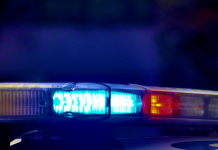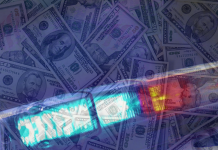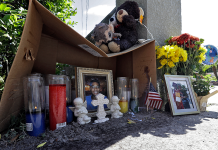Hurricane season is upon us but as shown earlier this week the forecast can change in a matter of seconds.
What appeared to be a rainy Monday turned into a Tropical Storm in a matter of hours leaving many Floridians scrambling to get hurricane ready. Beinf prepared for a hurricane or tropical storm is an important part of living in Florida.
The National Hurricane Center provides the following tips to being prepared for a hurricane.
Gather Information:
A big part of being prepared is gathering information. Know evacuation zones. Know your home’s safety when it comes to storm surge, flooding and wind. Be aware of the National Weather Service’s forecast for watches and warnings.
Always feel free to local National Weather Service office and local government/emergency management office.
Contacts:
Be sure to always keep a list of contacts, such as:
- Emergency Management Offices
- County Law Enforcement
- County Public Safety Fire/Rescue
- State, County and City/Town Government
- Local Hospitals
- Local Utilities
- Local American Red Cross
- Local TV Stations
- Local Radio Stations
- Your Property Insurance Agent
Plan & Take Action:
Build a supplies kit. Always have supplies on hand during hurricane season. You never know when a storm is going to hit and how it will imapct you. The National Hurricane Center suggests having these items in a basic supplies kit.
- Water – one gallon of water per person per day for at least three days, for drinking and sanitation
- Food – at least a three-day supply of non-perishable food
- Battery-powered or hand crank radio and a NOAA Weather Radio with tone alert
- Flashlight
- First aid kit
- Extra batteries
- Whistle to signal for help
- Dust mask to help filter contaminated air and plastic sheeting and duct tape to shelter-in-place
- Moist towelettes, garbage bags and plastic ties for personal sanitation
- Wrench or pliers to turn off utilities
- Manual can opener for food
- Local maps
- Cell phone with chargers and a backup battery
For an advanced emergency kit the National Hurricane Center suggests having these items added.
- Prescription medications
- Non-prescription medications such as pain relievers, anti-diarrhea medication, antacids or laxatives
- Glasses and contact lense solution
- Infant formula, bottles, diapers, wipes, diaper rash cream
- Pet food and extra water for your pet
- Cash or traveler’s checks
- Important family documents such as copies of insurance policies, identification and bank account records saved electronically or in a waterproof, portable container
- Sleeping bag or warm blanket for each person
- Complete change of clothing appropriate for your climate and sturdy shoes
- Household chlorine bleach and medicine dropper to disinfect water
- Fire extinguisher
- Matches in a waterproof container
- Feminine supplies and personal hygiene items
- Mess kits, paper cups, plates, paper towels and plastic utensils
- Paper and pencil
- Books, games, puzzles or other activities for children
Recover:
If your home or evacuation area is impacted heavily remember to not return to the area until it is declared safe. There are a lot of safety hazards that you may not be aware of.














